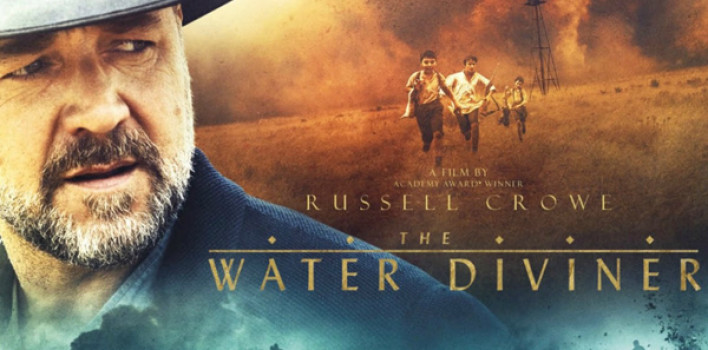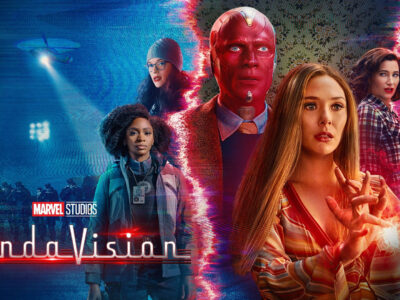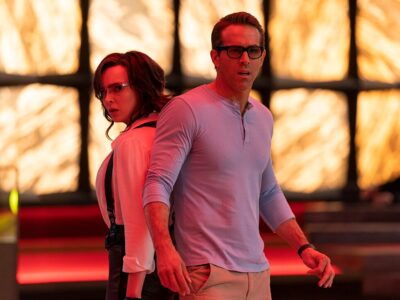Review| The Water Diviner: Reclaiming Our Humanity
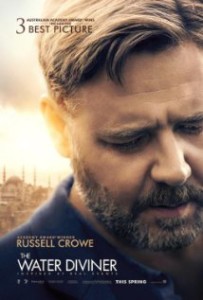 Russell Crowe does not aim low in his first major directorial effort. Instead of trying his hand at a smaller, more independent film, The Water Diviner is a film that explores humanity both at its worst and its best; from the fields of an incredibly bloody WWI battle, to the desperate search of a father for his sons. If there was a doubt that this film is supposed to strike at the heart of service and loss and family, then its release on the weekend of ANZAC Day should be a sign that someone is quite aware of the significance of the subject matter. Though not a huge release in the US, as it is set against the backdrop of the fallout from the Gallipoli Campaign (which, if you are not familiar with historically, is worth your five to ten minutes of perusing on wikipedia), this film has garnered much acclaim and won a number of awards in Australia and New Zealand, the nation of Crowe’s birth. I am not trying to set up the thought that this film has earned false praise– or that it couldn’t hold up with American audiences– but it does have an uphill battle since it doesn’t do either of the things that most successful US releases do; take place in America or star Americans.
Russell Crowe does not aim low in his first major directorial effort. Instead of trying his hand at a smaller, more independent film, The Water Diviner is a film that explores humanity both at its worst and its best; from the fields of an incredibly bloody WWI battle, to the desperate search of a father for his sons. If there was a doubt that this film is supposed to strike at the heart of service and loss and family, then its release on the weekend of ANZAC Day should be a sign that someone is quite aware of the significance of the subject matter. Though not a huge release in the US, as it is set against the backdrop of the fallout from the Gallipoli Campaign (which, if you are not familiar with historically, is worth your five to ten minutes of perusing on wikipedia), this film has garnered much acclaim and won a number of awards in Australia and New Zealand, the nation of Crowe’s birth. I am not trying to set up the thought that this film has earned false praise– or that it couldn’t hold up with American audiences– but it does have an uphill battle since it doesn’t do either of the things that most successful US releases do; take place in America or star Americans.
Outside of the easy to sum up plot (An Australian father (Russell Crowe) travels to Turkey to find his three sons who were reported missing in action), there is very little that The Water Diviner allows to be easy. Though it stumbles at times due to some curious slow-motion shots and a befuddling need to continue to press a love story that does not hold much interest compared to the main storyline, the film has a lot of heart and is set against some of the most beautiful middle-eastern and Australian backdrops. Those backdrops– of shorelines, sunsets, dust storms, towering mosques, and expansive countrysides– that set the underlying tension between the world of war and the world in recovery.
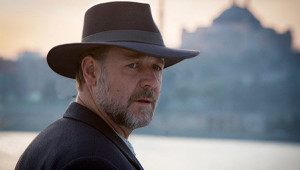 Human beings are an incredibly complicated and beautiful mess. It is a mess that we often tend to shy away from. It is far easier to avoid that mess by sticking a label on a person. Oh yes, they are this way– or they are that way. This person is a Christian, or a Muslim, or a Democrat, or Republican, or rich, or poor, or even, good, or evil. When we reduce someone’s humanity to a word– or a phrase, it makes it easier for us to refuse them or negate them. We stop seeing people– people who love, who hurt, who dream– and only see demographics or allies or enemies. War is one of the chief offenders to humanity.
Human beings are an incredibly complicated and beautiful mess. It is a mess that we often tend to shy away from. It is far easier to avoid that mess by sticking a label on a person. Oh yes, they are this way– or they are that way. This person is a Christian, or a Muslim, or a Democrat, or Republican, or rich, or poor, or even, good, or evil. When we reduce someone’s humanity to a word– or a phrase, it makes it easier for us to refuse them or negate them. We stop seeing people– people who love, who hurt, who dream– and only see demographics or allies or enemies. War is one of the chief offenders to humanity.
Ecclesiastes reminds us that there is a time for every season– even a time for war and a time for peace (though some people see this as a call to action while others see it as a simple acknowledgement of our broken world)– and war, in particular, is often a response born out of a desire for justice or protection or peace. In those conflicts however, we often have to tell ourselves a narrative; “We are good– they are wrong (or evil).” Those who lead armies know that this has to happen, for in nearly every case it is difficult to imagine taking the life of someone you see as more than an enemy, but as a person. This is why many of the best war films have taken the time to explore the soldiers humanity on both sides of a conflict as it removes the detachment and heightens the consequences of those conflicts. This is what The Water Diviner does well.
Lt-Col Cyril Hughes: What were you doing before the war?
Major Hasan: This is Ottoman Empire, there is no such a thing as before the war here. But in another life I was an architect.
It is easy to reject this idea. It is easy to reassure yourself that one side was the right side and another the evil (how often do we see ourselves conveniently and consistently on the right side?). This reality is why it is so necessary to think radically about our enemies– to put ourselves in their shoes. Romans tells us that “there is none righteous, no, not one.” But when we fall into the narratives of seeing other people as nothing more than a label, it is much easier to reduce that humanity and, in turn, label ourselves from a place of pride, masquerading as perspective. This is why, when Jesus calls us to “love your enemies and pray for those who persecute you.” it is so radical. It is not the easy thing to do– to choose to see someone’s humanity through the muck.
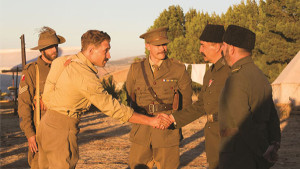 This idea is central to understanding the heart of The Water Diviner. By the middle of the film, there were so many thoughts and emotions circling in my head, I almost couldn’t process them all. As we follow Conner (Russell Crowe) through his journey to recover his sons, we see him and the returned ANZAC officers trying to come to grips with the fact that, with the war over, people like Major Hasan (played powerfully by Yilmaz Erdogan), who was their enemy, is now, again, just another human being trying to rebuild his life and his country. It is that tension between former enemies that drives the film– and when the films concentrates on that, it succeeds.
This idea is central to understanding the heart of The Water Diviner. By the middle of the film, there were so many thoughts and emotions circling in my head, I almost couldn’t process them all. As we follow Conner (Russell Crowe) through his journey to recover his sons, we see him and the returned ANZAC officers trying to come to grips with the fact that, with the war over, people like Major Hasan (played powerfully by Yilmaz Erdogan), who was their enemy, is now, again, just another human being trying to rebuild his life and his country. It is that tension between former enemies that drives the film– and when the films concentrates on that, it succeeds.
There is a lot going on that we can’t completely cover in one review, including the spiritual dealings of the film or the idea of a father recklessly pursuing his children, but those things only add to the central idea of reconciliation and reestablishing proper perspective of how complicated human beings are. It is because we cannot so easily be maligned into one man-made category that we must wrestle with the story in this film. We are unique and incredible and are made in the very imagine of God. When we begin to see our fellow man as an image-bearer of the Creator and less as a cause or idea– less as a political party or orientation– and more of a reflection, we are able to reclaim a little of our humanity, and begin to re-align how we see each other to what God sees.


